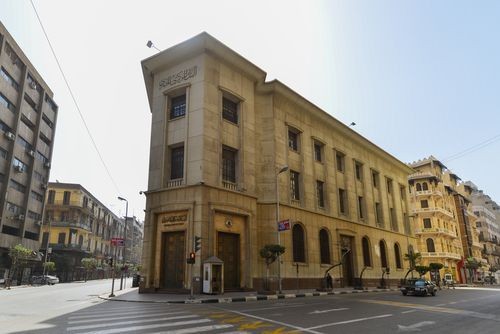How will Egypt fare following the resignation of the governor of the CBE?
The Governor of the Central Bank of Egypt (CBE), Tarek Amer, left his post after President Abdel Fattah El-Sisi accepted his resignation. He has now assumed the role of advisor to the president on Wednesday, August 17, according to an official statement made on Egyptian TV. Amer's term would have officially ended in November 2023 anyway.
According to the constitution, the decision to accept the resignation of the governor was made by Egypt's president. The governor of the CBE voluntarily left his post after seven years, the main reason being the many economic challenges that Egypt has faced since the start of his tenure in 2015. He is also facing difficult negotiations with the IMF.
Once the CBE resignation of the governor was announced, the value of Egyptian government bonds plummeted. They fell by 0.6-1.7 cents to the dollar, amid selling in international debt markets, Many of the country's long-term bonds saw the biggest moves.
Concerns about Egypt's debt levels led to some of its bonds dropping to less than half their face value during July, although they rose this month as global appetite for riskier assets improved.
The stock market receives the decision with a collective rise
The Egyptian Stock Exchange (ESX) responded to news of the vacancy at the CBE, by increasing the value of its main indices in mid-trading on August 17. The GX30 index rose by 0.69 per cent to trade at 9938 points. The EGX70 index rose by 1.43 per cent and reached 2180 points, while the EGX100 rose by 1.28 per cent to reach 3104 points.
Analysts were more cautious about the resignation of the governor of the CBE. Nonetheless, they still agreed the resignation would not have a significant impact on the progress of the International Monetary Fund's (IMF) negotiations with Cairo, about Egypt's monetary and financial policy.
Disagreement with the International Monetary Fund
An economics lecturer at the American University, Hani Genena, believes that "there is a dispute between the governor of the CBE and officials at the IMF regarding how to liberalise the exchange rate of the local currency against foreign currencies".
This is one of the main reasons that prompted Amer to submit his resignation before the end of his term, Genena said. He added that the demands of the fund officials revolve around the need to "liberalise the exchange rate completely and freely without the intervention of monetary policy in Egypt". Amer had rejected this for fear of eroding depositors' savings in local banks. In addition, the complete liberalisation of the currency will raise prices insanely in Egypt". He also said: "With the resignation of the governor, I expect Cairo to obtain a loan from the fund as soon as possible."
Cairo is continuing its efforts now, through arduous negotiations with IMF officials, to obtain a new credit facility of at least USD 5 billion to support Egypt's foreign cash reserves, which fell to about USD 33 billion in June 2021.
The local currency is on the way to full flotation
In the same direction, economist Hani Tawfiq considered that "the apology of the governor of the CBE for continuing in the position indicates the existence of major differences between IMF officials and Amer, which caused the delay in Egypt's obtaining the loan".
Tawfiq continued: "The fear of negative economic, financial or even monetary repercussions after that resignation is completely unjustified, especially since the local currency is on its way to complete liberalisation (flotation) and partial or gradual reduction of subsidies on fuel or food commodities".
Former vice president of Banque Misr, Sahar El-Damaty, said: "Cairo is not run by a single person, and the management of the CBE includes governors, four deputies and a number of members who have sufficient banking experience to manage monetary policy in Egypt". Al-Damaty confirmed that she is not afraid of the value of the local currency falling and Cairo's difficult negotiations with the IMF. She also highlighted that Amer "has become an advisor to the president of the Republic and will not leave the banking administration completely".
At the same time, local press reports are circulating several names to succeed Amer. These include the head of the United Media Services Company, Hassan Abdullah and the banker Hisham Ezz Al-Arab, who was CEO of the Commercial International Bank of Egypt. The list also includes the minister of International Cooperation, Rania Al-Mashat, due to her banking experience, and the current deputy governor of the CBE, Jamal Najm.


Comments